The last straw
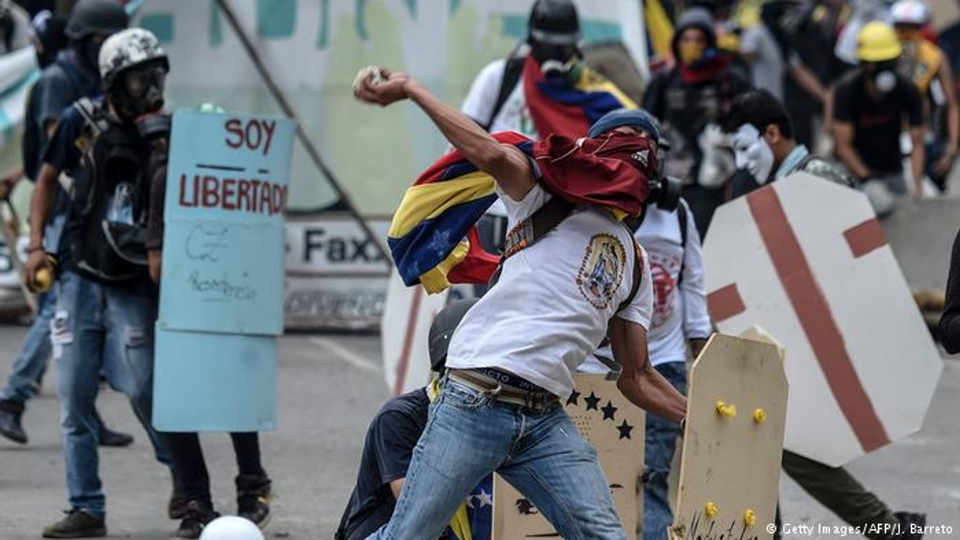
Violent protests erupted across the country following a Supreme Court decision in late March 2017 to strip the legislative branch of its powers. Amid an international outcry, President Nicolas Maduro reversed the decision, but it was too late. Thousands took to the streets to call for new elections and dozens died in clashes with security forces.
Starvation a growing problem
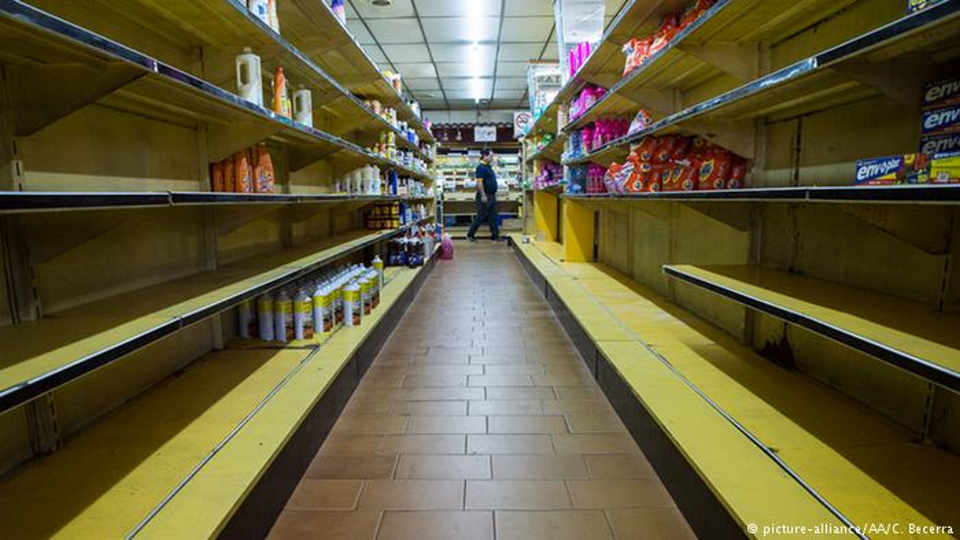
Venezuelans spend more than 30 hours a week waiting in lines to shop, and are often confronted with empty shelves when they finally enter a store. President Maduro blames the crisis on US price speculation. The opposition, however, accuses the Socialist government of economic mismanagement.
Health care crisis ‘reminiscent of war zones’
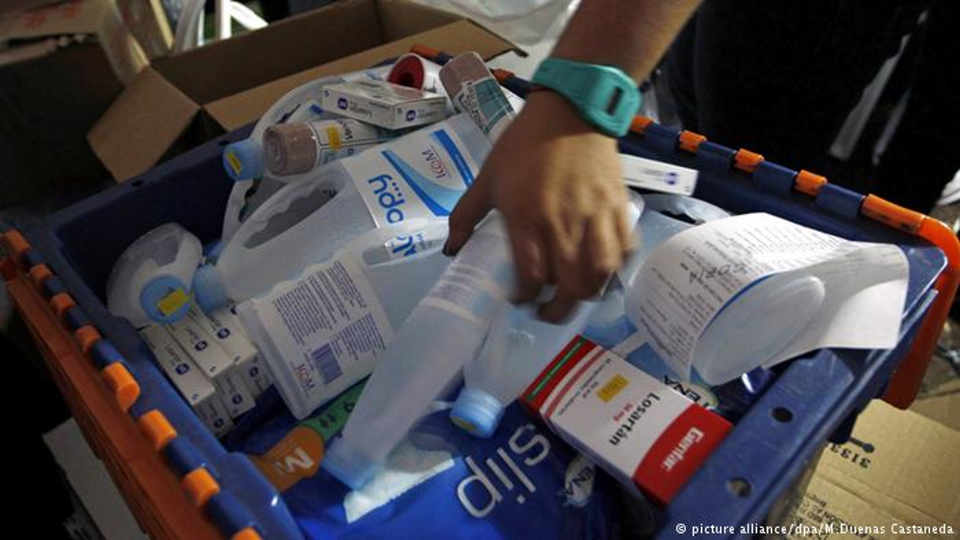
In Colombia, Venezuelans are collecting medical supplies to send home, as seen in this picture. Hospitals around the country have compared conditions to those seen only in war zones. As patient deaths rise, health officials have sounded the alarm on the rise of malaria and dengue fever.
Venezuela’s Constituent Assembly seizes power from opposition-led congress
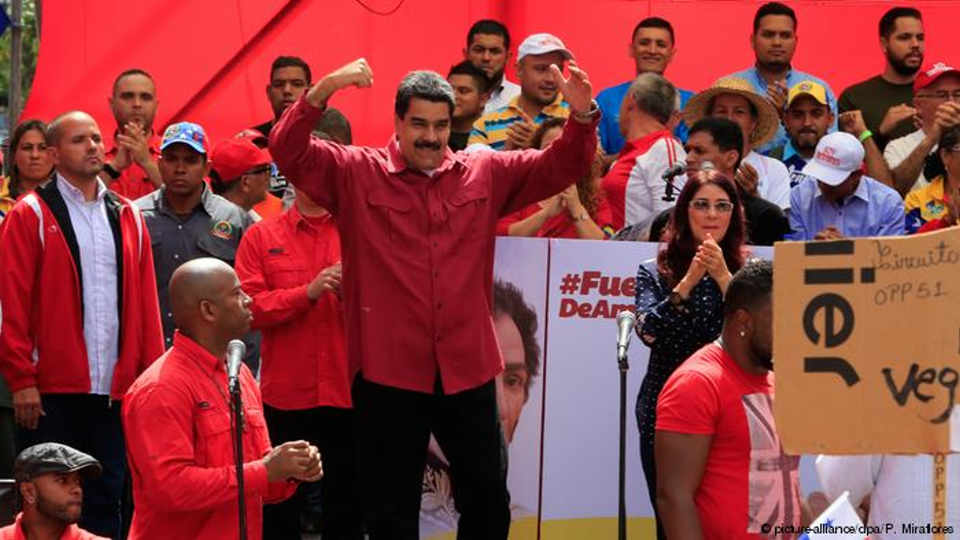
Venezuela’s pro-government constituent Constituent Assembly was established in July of 2017. The new body adopted the authority to pass legislation on a range of issues, effectively taking away the powers of congress, which was under the opposition’s control. The move drew wide international condemnation.
Western powers slap sanctions Venezuela’s ruling officials
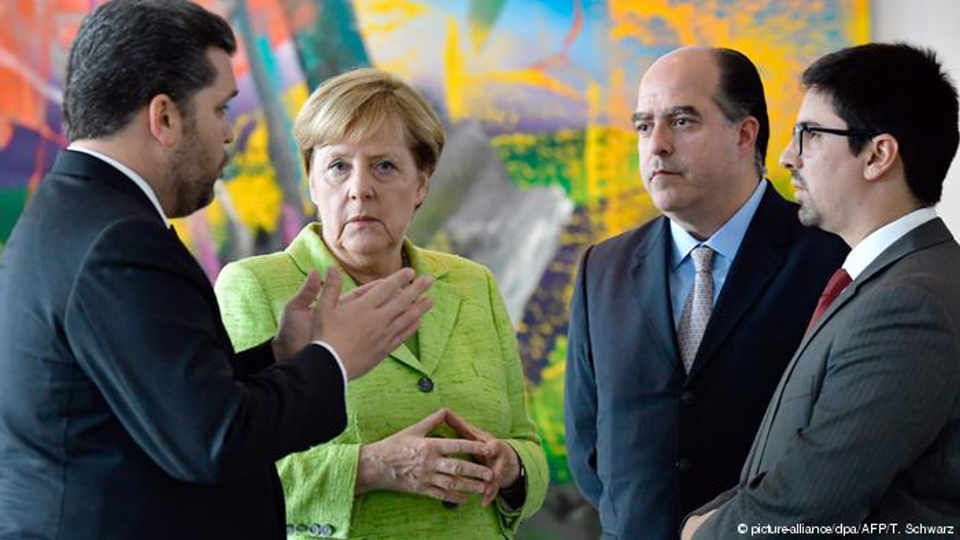
In response to the ongoing political crisis, the United States and European Union imposed a series of sanctions against ruling officials. The US has blacklisted members of the Constituent Assembly and frozen all of Maduro’s assets that are subject to US jurisdiction. The EU, meanwhile, has banned arms sales to the country and is lining up to freeze assets and impose travel restrictions.
Government victorious in regional elections
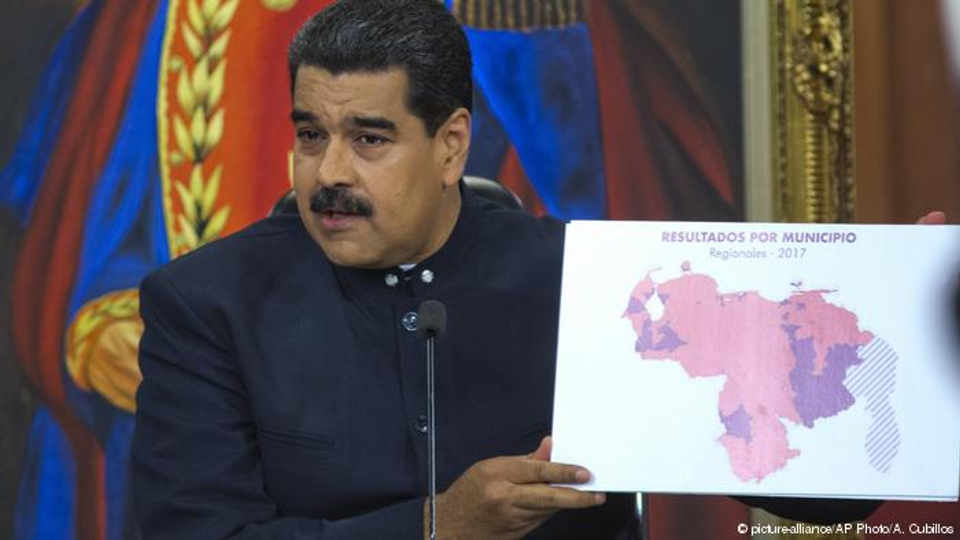
In October 2017, Venezuela held two votes: regional elections and elections for governors, which were overdue since 2016. The opposition boycotted the vote, but then split, as some candidates and small parties chose to participate. This caused a deep rift within Maduro’s opponents. The government went on to sweep the contest, which detractors say was unfair and heavily favored the regime.
Debt default looms
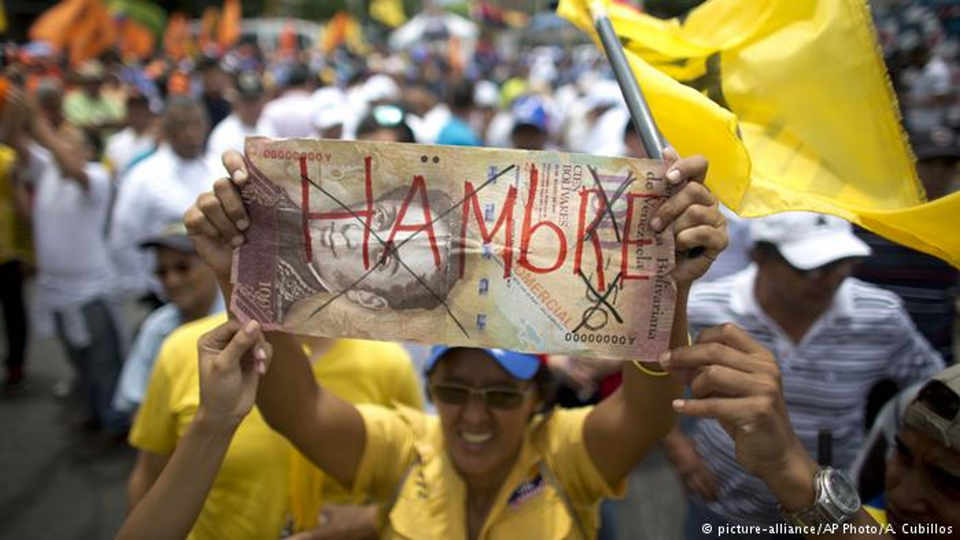
Last November the oil-rich, cash-poor nation faced its day of reckoning, as officials met with creditors to hammer out a deal to keep the country from defaulting on its debt — estimated to be up to $150 billion (€127 billion). US and EU sanctions, however, have limited the chance of an agreement. Creditors will almost certainly go after the country’s oil reserves.
The ‘massacre of El Junquito’
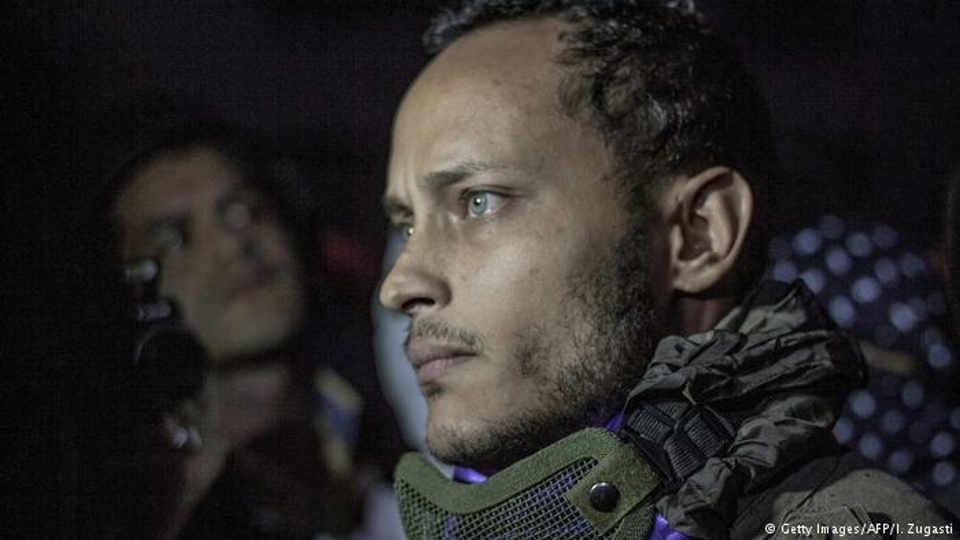 In January, Oscar Perez, Maduro’s enemy number one, was found by police in the Caracas neighborhood of El Junquito. The ex-cop had been on the run since he launched grenades at government buildings in the wake of the 2017 protests. The government labeled him a “terrorist.” Perez and six other rebels were killed in the ambush, which the opposition denounced as an “extrajudicial killing.”
In January, Oscar Perez, Maduro’s enemy number one, was found by police in the Caracas neighborhood of El Junquito. The ex-cop had been on the run since he launched grenades at government buildings in the wake of the 2017 protests. The government labeled him a “terrorist.” Perez and six other rebels were killed in the ambush, which the opposition denounced as an “extrajudicial killing.”
Presidential elections scheduled
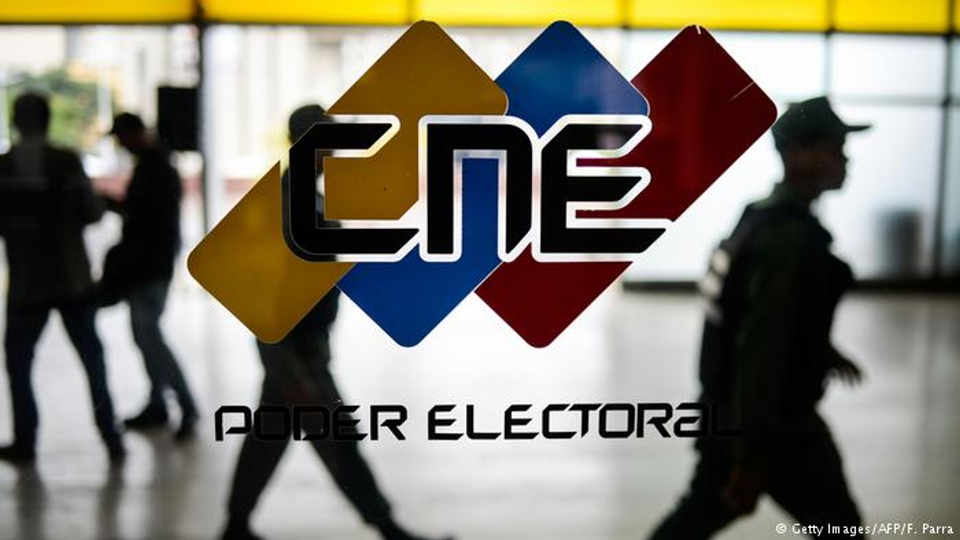
The new National Assembly announced in January that it would grant Maduro’s call for snap presidential elections on April 22. The electoral authority, CNE, later moved the date to May 20. The EU, the US and 14 Latin American nations warned that they would not recognize the results. The mainstream MUD opposition alliance boycotted the vote.
Maduro wins …
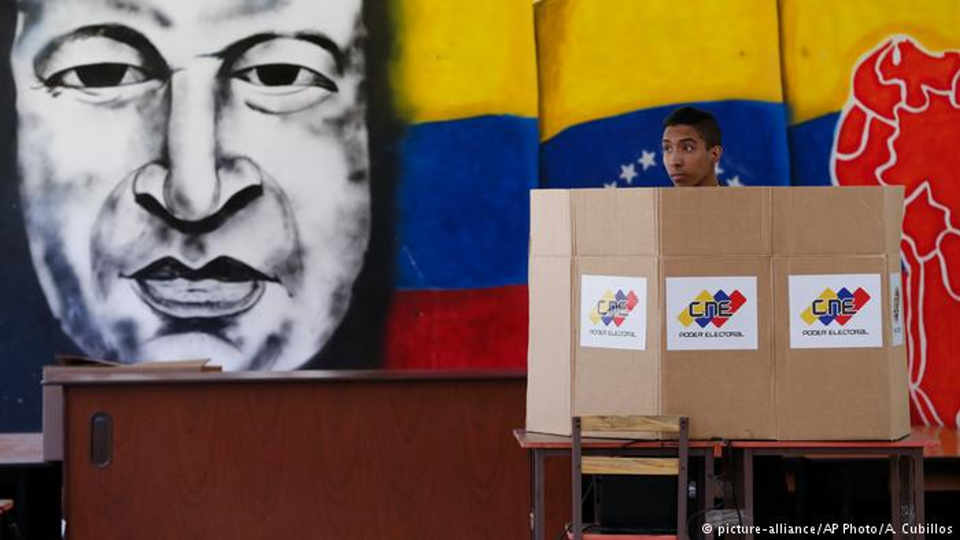
Maduro was re-elected to a second six-year term on May 20 with about 68 percent of the vote. Turnout was only 46 percent, according to the election body. However, the MUD opposition alliance, which boycotted the vote, put turn out at less than 30 percent. The Organization of American States called the elections neither free nor fair.
… Guaido assumes power
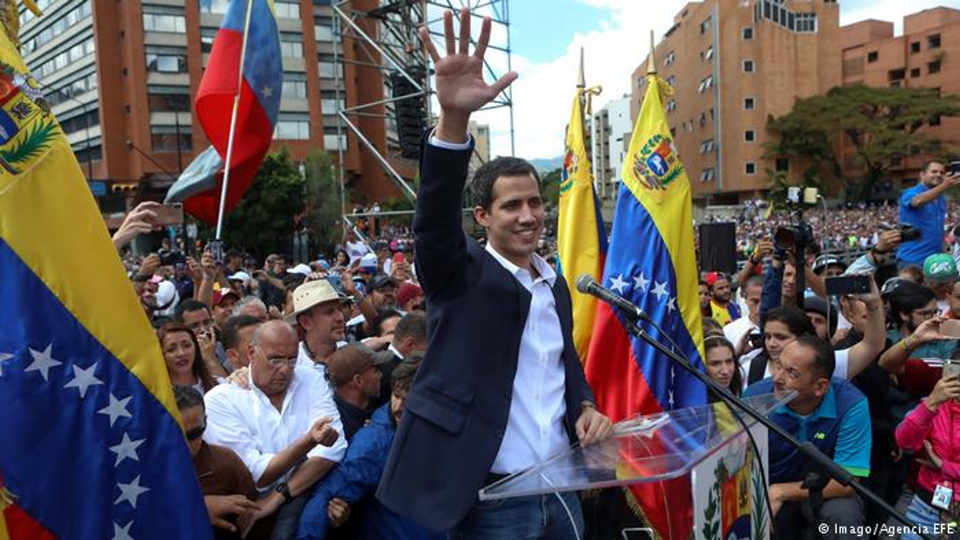
On January 23, 2019, parliament president Juan Guaido declared himself interim president of Venezuela — a move that was quickly recognized by US President Trump. However, Maduro called it a “coup” and insisted he was going nowhere.













